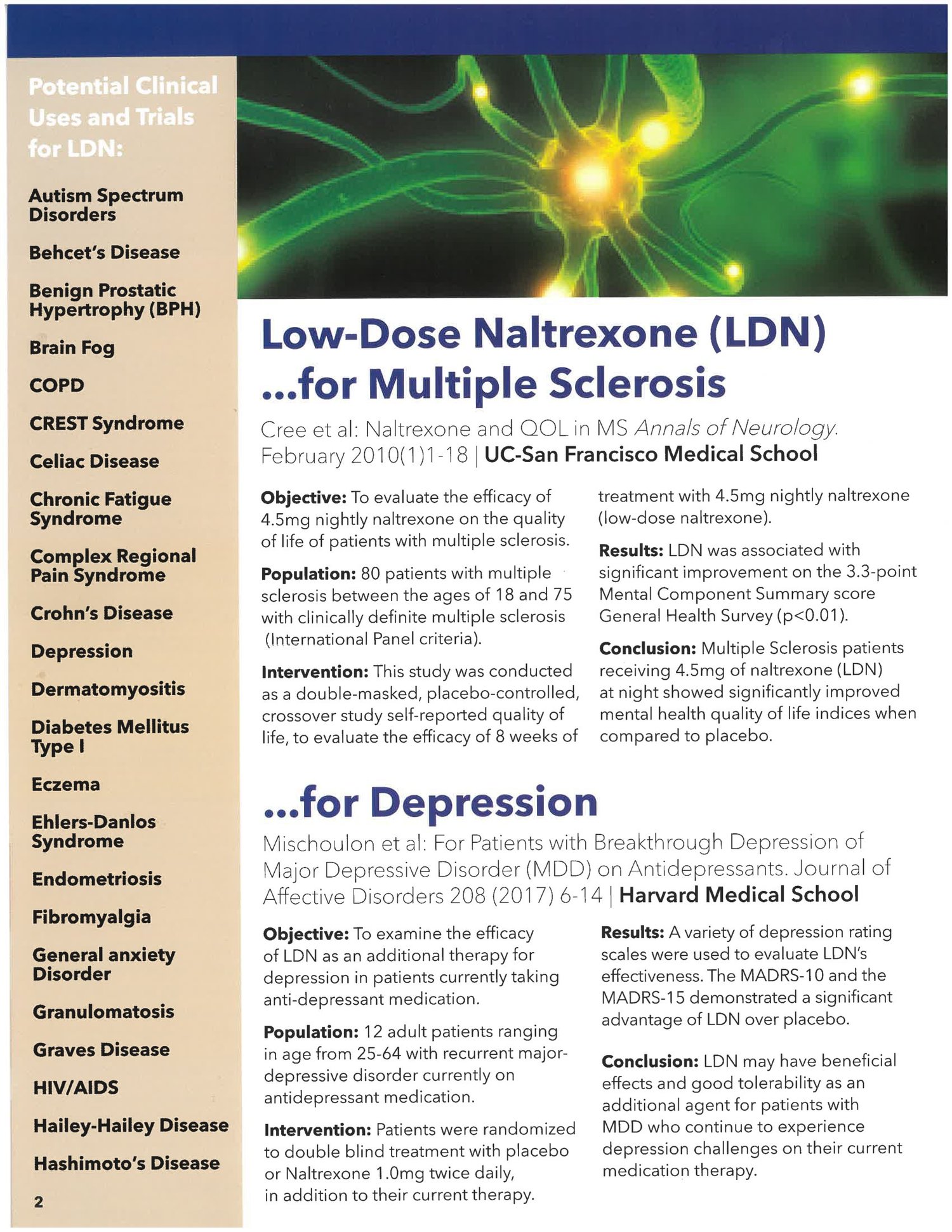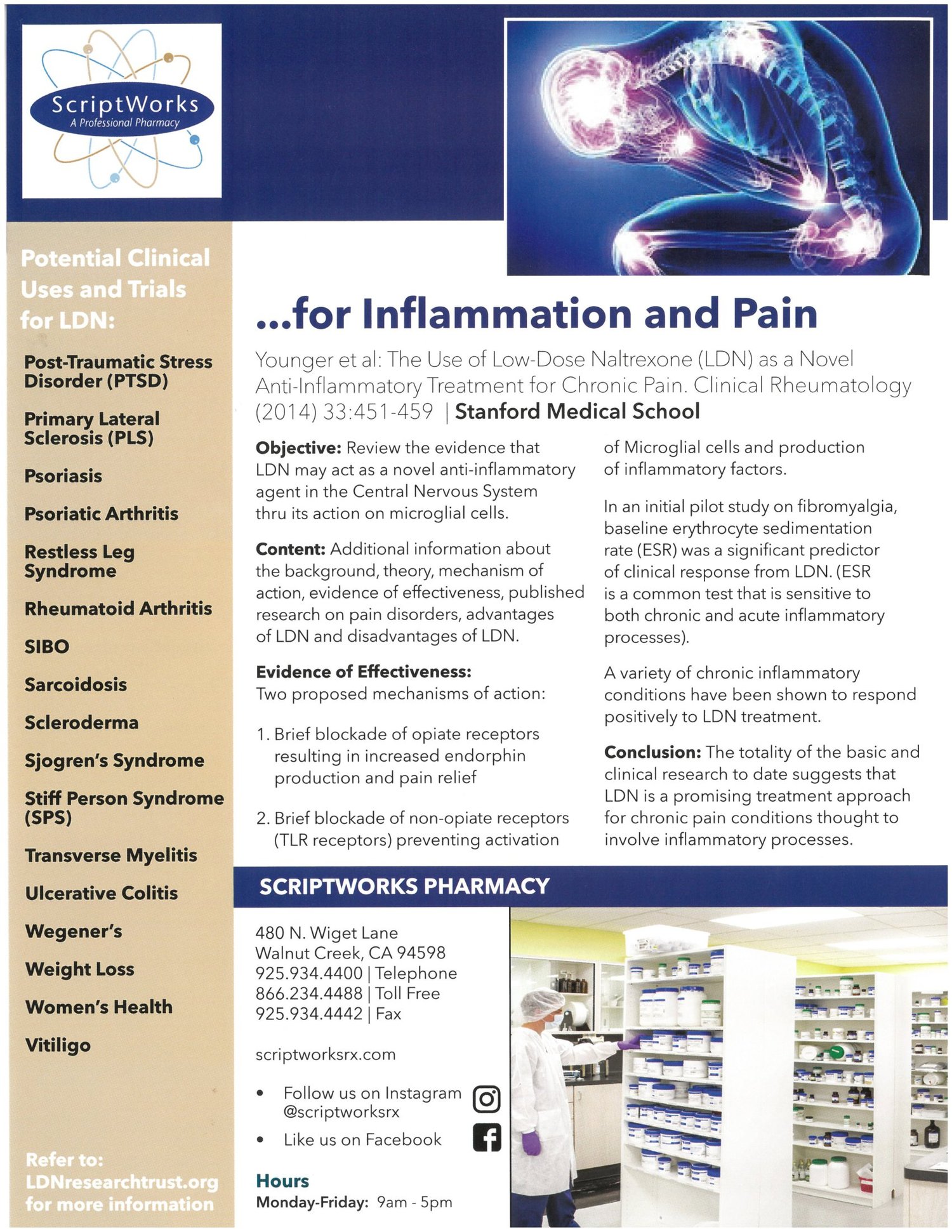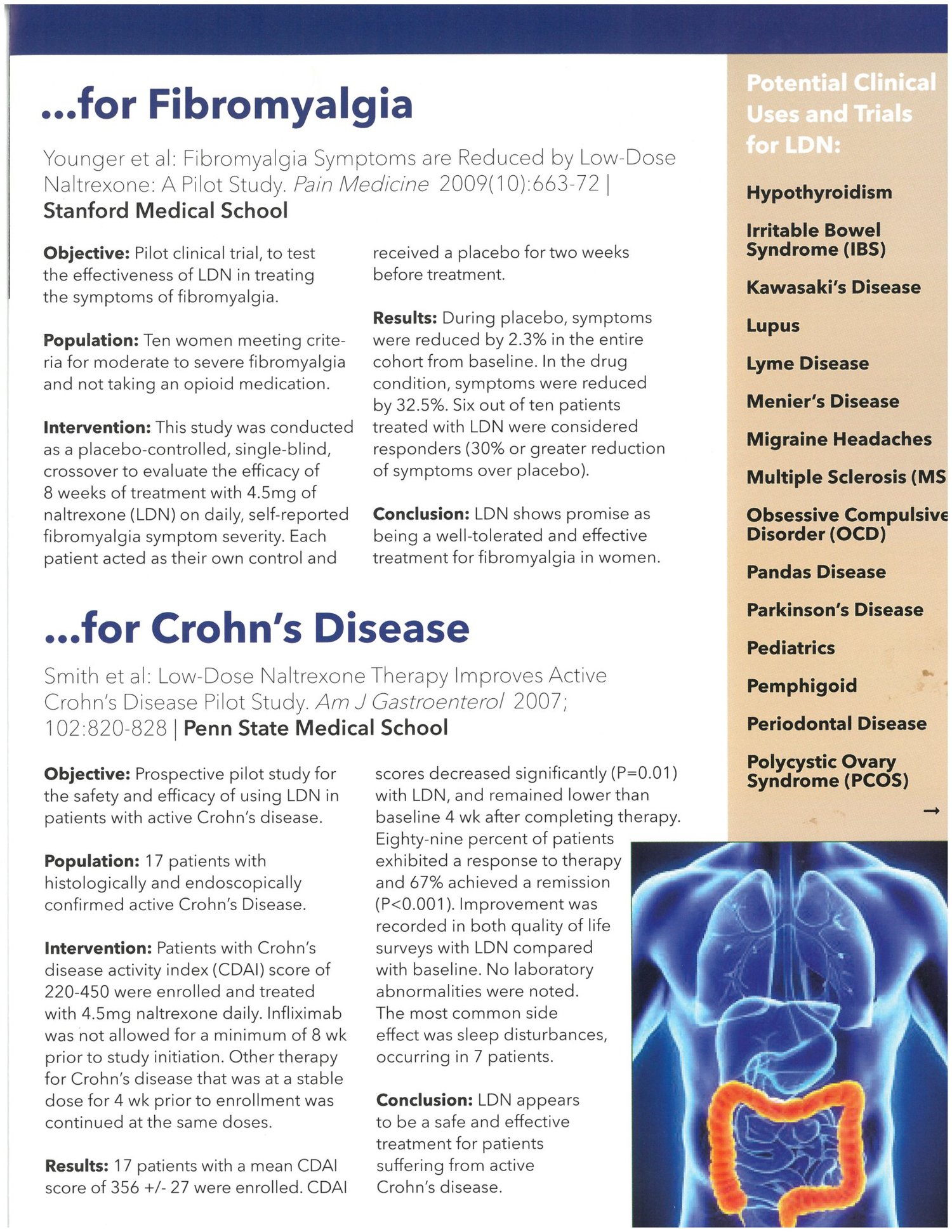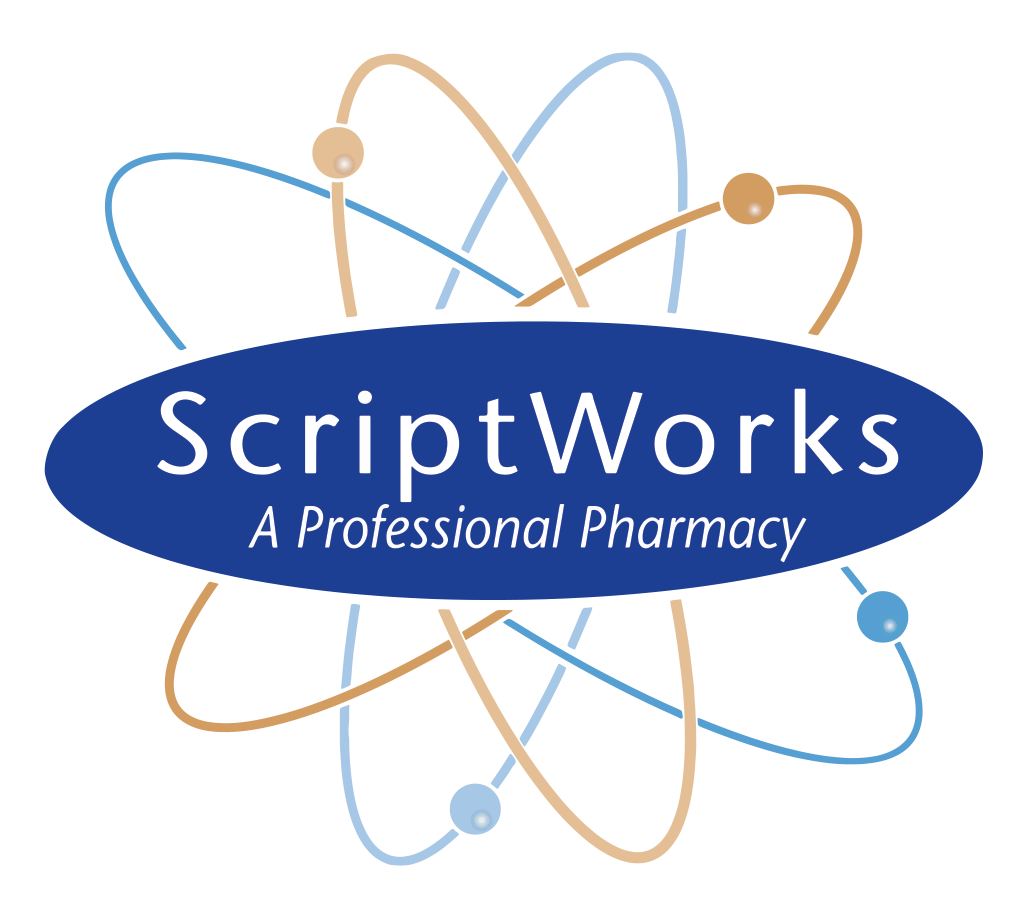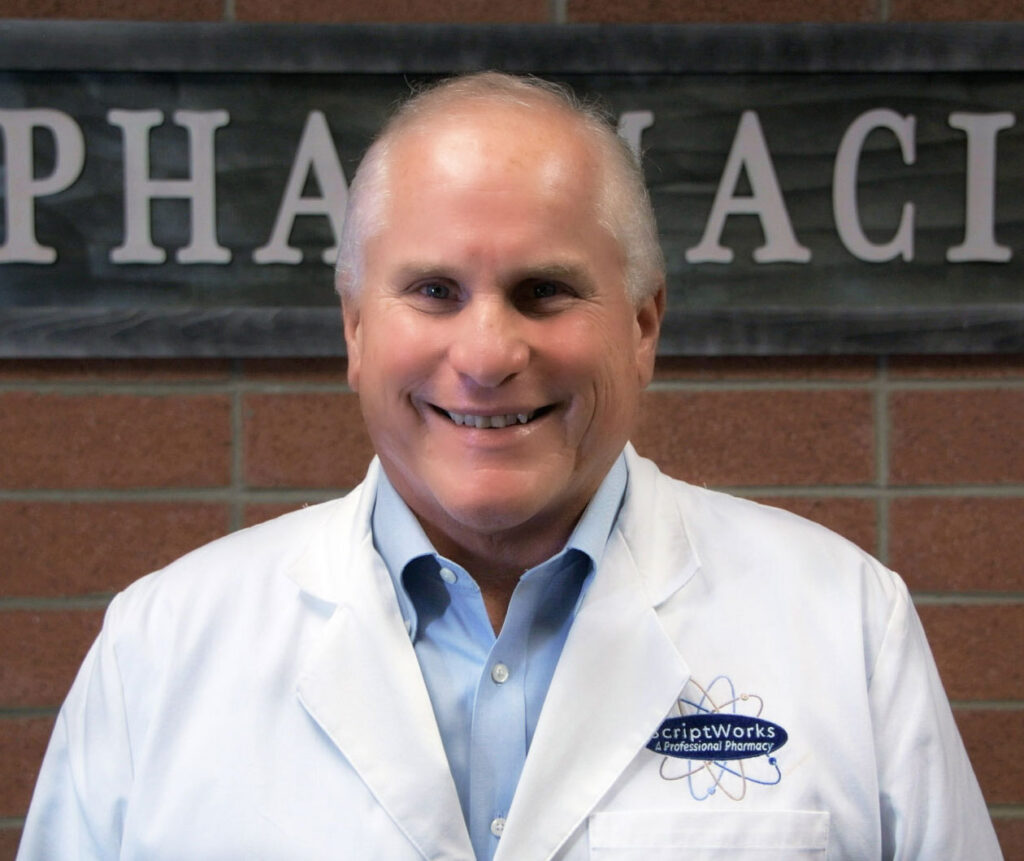
Author: Bob Brensel | President, Pharmacist | ScriptWorks
Bob Brensel, RPh, earned his Pharmacy Degree at University of the Pacific in Stockton, California in 1980. Former California Pharmacists Association’s Award Winner for Recognition of Outstanding Achievement in Compounding Pharmacy. Read More →
Low Dose Naltrexone (LDN) is emerging as a potential game-changer in the medical world.
Low Dose Naltrexone’s unique mechanism of action, coupled with promising results in various medical conditions, has led to increased interest from both patients and healthcare providers. But as with any medication or solution, more research is needed to fully understand LDN’s potential and safety across different conditions.
ScriptWorks has spent hours and hours researching and collaborating with healthcare professionals on Low Dose Naltrexone since 2014. Doctors and pharmacists around the world continue to study this fascinating therapy.
Expert Medical Compounding
At ScriptWorks, we have carefully compounded Low Dose Naltrexone for over 4000 patients and we’re just getting started. I say carefully because making tiny doses requires specialized calculations and lots of laboratory potency testing.
Doctors rely on our pharmacists to help their patients understand this sometimes complicated drug therapy.
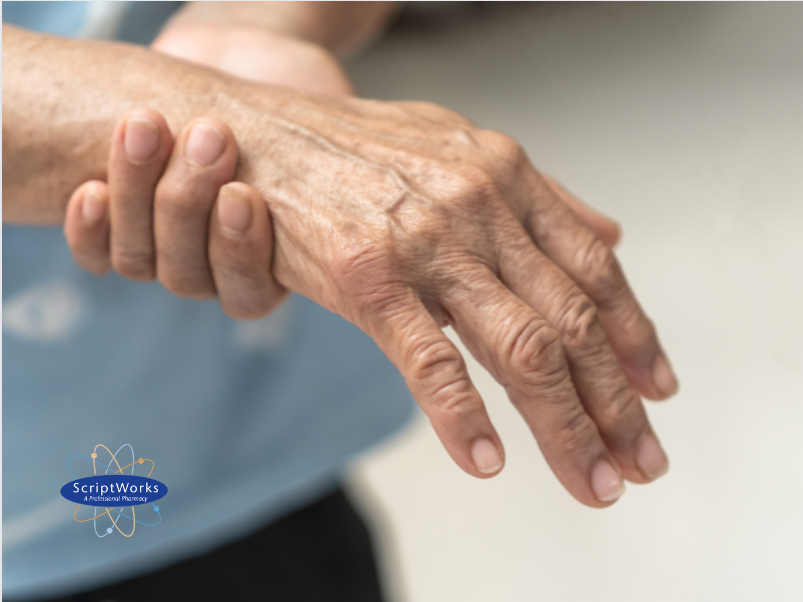
Understanding Low Dose Naltrexone
First, we need to discuss Low Dose Naltrexone’s parent compound, Naltrexone. Naltrexone, in its conventional higher doses, has been used for decades to block the effects of opioids and alcohol, allowing emergency medicine physicians to save patients’ lives who have overdosed taking opioids like heroin, vicodin, oxycodone, fentanyl, and also alcohol. LDN only partially blocks this receptor for a short period of time.
Low Dose Naltrexone is not like any other medication you have ever taken. It works like a Cascade effect. We are using the body’s own systems: increased endorphins, TLR 4 activation to impact inflammation and immune function.
Start slow, since patients may respond to low levels. With a slow ratcheting up of dose, the side effects are very minimal if not non-existent.
Endorphin molecules interact with Toll Like Receptor 4 which can have a pivotal role in the regulation of the immune responses to infection.
Bottomline, Low Dose Naltrexone can potentially help patients with autoimmune diseases as well as inflammatory conditions. Which represents many different potential clinical uses.
Patients who may benefit from LDN Therapy:
- Chronic pain
- Arthritis
- Ulcerative Colitis
- Eczema
- Inflammation
- Celiac disease
- Lupus
- HIV/Aids
- Animals
- Hashimoto’s
- Graves’ disease
- Crohn’s Disease
- Neuroinflammation
- Multiple Sclerosis
- Autism
- Traumatic Brain Injury (TBI)
- Lyme Disease
- Parkinson’s disease
- Alzheimer’s
- Psoriasis
- Sjogren’s Syndrome
- Irritable bowel
- Fibromyalgia
- Cancer
- Weight Loss
